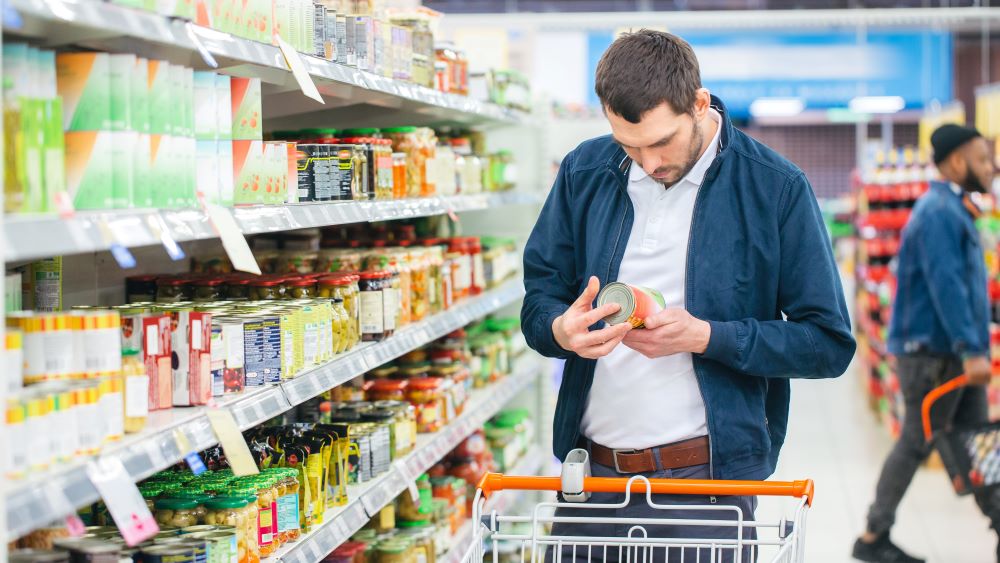
The UK’s recent change to the legal definition of wine – in which a drink can remain defined as ‘wine’ even when containing 0% alcohol – raises important questions about the nature of food standards.
How are decisions made about what constitutes a certain good and what happens when suppliers cross that line?
The IOE&IT Daily Update spoke to Institute of Export & International Trade (IOE&IT) trade and customs consultant Laura Williams to find out about food standards, fraud and the actions being taken to stop food-related crime.
Political
When asked why we now run the risk of accidentally buying alcohol-free wine, or rather, what the forces behind changes to the definitions of food products are, Williams explains that a shift in the nature of the food industry is partly responsible.
“You’ll find that, like some food industries, particularly those outside of Europe, we are becoming more politically-minded.
“There are lobbying boards within the UK that are very vocal and give a lot of money for research. That's how a lot of these issues will be given a voice.”
While we can all look out for the ‘no-alcohol’ or ‘0%’ marking on UK wine bottles, when the change comes into force next year, Williams says that egregious examples of changing definitions can border on “misrepresentation”, misleading customers.
Adulteration nation
One common method of misrepresentation is ‘adulteration’: when a product is deliberately and covertly altered by changing the ingredients and overall composition, resulting in a debasement of the quality.
Going far beyond the realm of misrepresentation was the 2013 horsemeat scandal, which left European shoppers collectively balking and suspiciously eying frozen ready-meals, after standard spot checks, with the revelation that numerous beef products distributed through major retailers contained up to 100% horsemeat.
The UK government sought an independent investigation into the integrity of UK food supply chains. This led to the Elliot Review, which made recommendations designed to ensure higher food standards.
These included a ‘safe haven’ food intelligence hub, allowing government and industry access to information about potential or existing food fraud and the National Food Crime Unit (NFCU), set up in 2015 to investigate and prosecute food offences.
In its most recent annual update, the NFCU reported two active operations into food fraud. Operation Highland, investigating possible adulteration of ‘premium-grade’ potatoes and Operation Blackthorne, investigating the misrepresentation of RSPCA-assured, Scottish smoked salmon with a Norwegian substitute.
Any progress?
However, on the topic of whether food safety has improved in the decade since the Elliot Review, Williams is sceptical.
Asked if the food industry could be rocked by another adulteration scandal, she says “easily”.
“It's not a case of ‘if’, it's a case of ‘when’. Unless you’ve raised the animal yourself, you can never be 100% sure.
“Every country is like that. The only country I can say honestly hand-on-heart say is different is Australia, because their attitude is ‘nothing is safe’.”
Due diligence
This sets up an interesting tension between the different lines of defence against food fraud.
Who takes accountability when something unsafe or not correctly labelled slips through the supply chain and makes its way to our shelves?
“Making sure the product being imported is safe and compliant, that’s on the company, that's on the importer. It's always their due diligence, their responsibility.
“Some companies will just go out and get a quote for the cheapest product and then purchase it. Other companies won't engage with the supplier until that supplier has gone through a full legal onboarding process.”
The temptation companies face to cut corners extends to preventing delay as well as minimising up-front costs. Williams describes onboarding processes as taking months, which doesn’t bode well for the tight timelines food supply chains work to, known as “just-in-time”.
She says that regimental scheduling at large distributers, like major supermarkets, means there’s sometimes there’s only “minutes to spare” for suppliers to make delivery slots.
“If they can't make the slots, [some supermarkets] may actually refuse that delivery. And then the supplier’s stuck with a whole truckload of onions or some other perishable food product.”
Ongoing concerns
Concerns around adulteration continue, with the ultimate advice being to always check the product labelling. Williams described the poor quality of certain foodstuffs as an industry open secret, even if they frequently fool customers.
“What most people don't realise is that 99% of shop-bought ‘ice cream’ isn't just ice cream.
“It needs an export health certificate and a phytosanitary certificate because it contains palm oil, which is what allows you to actually scoop it.”
New import requirements coming into effect next year as part of the Border Target Operating Model (BTOM) will also impact EU honey entering the UK, which is another commonly faked product.
Williams notes that “Europe does produce a lot of honey”, which will be subject to more intensive checks under BTOM rules, but adds that other parts of the supply chain may prove trickier to police.
This follows a European Commission report earlier this year, in which 46% of sampled products were found to be fraudulent – adulterated with sugar and syrups.
All 10 UK samples included in the study were found to be adulterated with concerns raised over the quality of imports from the UK’s biggest supplier, China.
Although a key player in the global supply of honey, many countries have corroborated laboratory samples and found that Chinese honey tends to be diluted with sugar and sweeteners.



